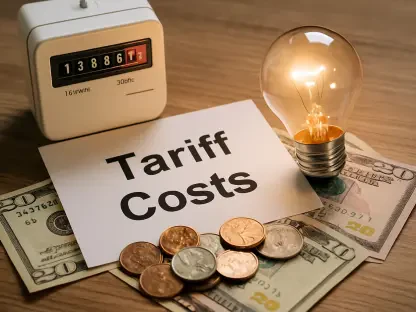What happens when a city on the brink of becoming a global digital finance titan is suddenly reined in by its powerful neighbor? Hong Kong, a buzzing hub of financial innovation, stands at a crossroads as China casts a shadow over its ambitious plans to lead in real-world asset (RWA) tokenization. This unexpected pause, driven by regulatory caution, has sent ripples through markets and boardrooms alike, leaving stakeholders questioning the future of blockchain-based finance in the region. Dive into this clash of progress and prudence to uncover the forces shaping a critical moment in digital asset evolution.
The High Stakes of Digital Transformation
Hong Kong has long been a beacon of financial prowess, but its latest ambition to dominate the digital assets space is hitting a significant barrier. RWA tokenization—converting traditional assets like real estate, bonds, and stocks into tradable digital tokens on blockchain platforms—promises to revolutionize global markets, with current valuations at $29 billion and projections soaring past $2 trillion by 2030. For this city, embracing such innovation isn’t just a trend; it’s a strategic leap to cement its status as a world-class financial center amid fierce global competition.
Yet, as Hong Kong rolls out progressive measures like stablecoin frameworks and tokenization sandboxes, a stark contrast emerges with mainland China’s risk-averse stance. This tension isn’t merely a local issue—it’s a signal to international investors and firms watching closely. The implications of this regulatory tug-of-war extend far beyond the city’s borders, affecting confidence in digital finance across Asia and potentially reshaping global investment strategies.
Hong Kong’s Bold Vision Meets Regulatory Resistance
The city’s drive to become a digital assets powerhouse is evident in its structured initiatives. Projects like Project Ensemble, a sandbox for tokenization experiments, and a stablecoin licensing regime that has attracted interest from 77 firms as of recent counts, showcase a commitment to balancing innovation with stability. These efforts aim to position Hong Kong as a gateway for Chinese firms to tap into the global digital economy while maintaining robust oversight.
However, China’s influence looms large, casting doubt on the pace of this transformation. With a history of stringent controls, including a ban on cryptocurrency trading and mining since a few years ago, Beijing’s latest move to pause RWA activities in Hong Kong reflects a broader philosophy of caution. This isn’t just a minor hiccup; it’s a deliberate effort to curb speculative risks in a sector seen as volatile, even in an offshore financial hub like Hong Kong.
Behind China’s Cautious Stance on RWA Tokenization
Delving into the specifics, China’s informal directive to brokerages to suspend RWA tokenization activities reveals a calculated approach. The China Securities Regulatory Commission (CSRC) has reportedly advised at least two major players, including Guotai Junan International and GF Securities, to halt their initiatives. This comes despite earlier successes, such as GF’s issuance of currency-tied tokens and digital bond offerings by China Merchants Bank International, which hinted at a thriving tokenized asset market.
The rationale appears rooted in a deep-seated concern for financial stability. Unlike Hong Kong’s innovation-friendly policies, mainland regulators prioritize preventing speculative bubbles over rapid adoption of untested financial tools. Market reactions underscore the weight of this decision—stock prices of affected brokerages dropped between 2% and 7.25% on the day the news emerged, compared to a broader market decline of just 0.9%, highlighting investor unease over regulatory unpredictability.
This pause isn’t an outright ban but a clear message to tread carefully. It reflects a broader struggle to align cutting-edge technology with the need to safeguard economic order, a challenge that could redefine how digital assets evolve in the region. The contrast with past stock surges, like Guotai Junan’s 400% rally after gaining cryptocurrency trading approval, paints a vivid picture of the highs and lows driven by policy shifts.
Industry Reactions and Market Sentiments
The ripple effects of China’s directive have stirred varied responses across the financial landscape. Industry insiders note that while Hong Kong’s Financial Services and Treasury Bureau and the Hong Kong Monetary Authority (HKMA) are crafting supportive guidelines for tokenized products, Beijing’s oversight remains the ultimate checkpoint. A source close to a prominent brokerage remarked, “This isn’t a shutdown, but it’s a firm nudge to ensure these projects are grounded in solid operations rather than hype.”
Market analysts have also weighed in, pointing to the uncertainty as a major concern. One expert observed, “The ambiguity around how long this pause will last is eroding confidence more than the pause itself.” The sentiment is mirrored in the volatility of stock prices, where earlier enthusiasm for digital assets has given way to caution, leaving investors and firms grappling with an unpredictable regulatory environment.
These reactions underscore a critical divide—between Hong Kong’s push for global competitiveness and China’s insistence on control. The voices from the field highlight not just frustration but also a pressing need for clearer communication between local and mainland authorities to stabilize expectations in a high-stakes sector.
Charting a Path Forward Amid Uncertainty
For stakeholders navigating this regulatory maze, strategic adaptation is essential. Firms operating in Hong Kong are encouraged to double down on compliance, aligning with HKMA guidelines for tokenized products and participating in pilot initiatives like Project Ensemble to prove the viability of their operations. Building transparency can serve as a bridge to gain trust from both local and mainland regulators during this period of scrutiny.
Investors, on the other hand, might consider diversifying their portfolios to mitigate risks tied to RWA tokenization uncertainties. Balancing exposure with more stable asset classes in Hong Kong’s market, while staying attuned to policy updates from the CSRC and local bodies, can help weather potential shifts. Keeping a pulse on regulatory announcements ensures timely adjustments to investment strategies in this fluid landscape.
Policymakers in Hong Kong have a unique opportunity to shape the narrative through ongoing legal reviews, particularly in areas like the bond market. Crafting a framework that addresses Beijing’s concerns about risk while fostering innovation could set a precedent for collaboration. Engaging in dialogue with mainland regulators to establish clear timelines and expectations for resuming RWA activities remains a vital step toward reducing friction and sustaining momentum.
Reflecting on a Pivotal Moment
Looking back, the pause in RWA tokenization in Hong Kong stood as a defining chapter in the region’s journey toward digital finance leadership. It highlighted the delicate balance between embracing transformative technologies and safeguarding financial systems, a challenge that tested the resolve of firms, investors, and regulators alike. The immediate market tremors and industry frustrations painted a complex picture of ambition tempered by caution.
Yet, the path ahead seemed to hinge on actionable collaboration. Establishing clearer regulatory boundaries and fostering trust through transparent operations emerged as critical next steps that stakeholders pursued. Bridging the gap between Hong Kong’s innovative spirit and China’s protective oversight promised to unlock new possibilities, ensuring that digital asset evolution continued with stability as a cornerstone. The lessons from this episode offered a blueprint for navigating similar crossroads in global financial hubs facing regulatory dilemmas.









